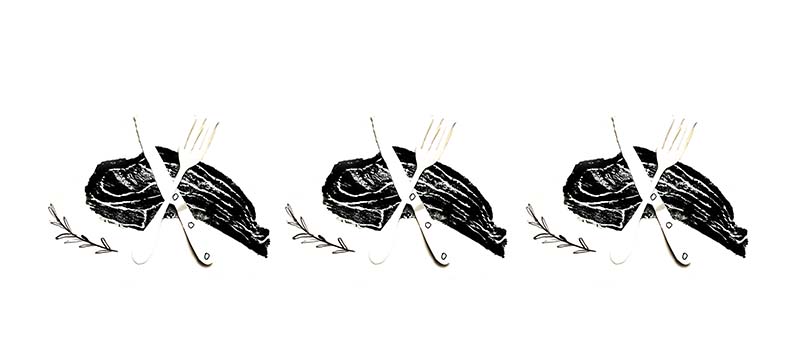For many vegetarians, their worst nightmare would be to realize you have accidentally eaten some meat. The thought alone is often nauseating for them. Besides, a lot of vegetarians are convinced that their bodies can no longer digest meat properly. But is that really so? Because it would mean that a meat-free lifestyle changes something in your digestive tract.
That is not the case, however, says professor of Nutrition, Metabolism and Genomics Sander Kersten. ‘Our bodies are perfectly capable of breaking down proteins and they don’t differentiate between animal or plant proteins. The enzymes that are involved in breaking down meat are the same as those that help with digesting tofu or chickpeas.’
Nor can you lose these enzymes at any point, as does happen in cases of lactose intolerance, for example, when a person doesn’t drink milk for a long time. ‘The big difference is that in that case, a specific enzyme, lactase, is responsible for breaking down the milk sugar lactose. That enzyme disappears naturally as you get older, because milk is normally only for young animals. So adults drinking milk is actually an abnormal situation.’ You can therefore raise children as vegetarians, which Kersten has done himself, without being afraid that they won’t be able to tolerate meat later.
When our bodies break down protein, they don’t differentiate between animal and plant protein
Sander Kersten, professor of Nutrition, Metabolism and Genomics
People who switch to a vegetarian diet can develop bowel trouble to start with. Kersten: ‘That is because plant protein is hard to digest, unlike meat. It is not for nothing that herbivores have longer digestive tracts. Poor digestion can lead to problems like more gas formation due to bacteria in the colon. A lot of people report that this got better the longer they were vegetarian, which suggests that the body adjusts to the change of diet. The composition of our gut flora also changes over time, which is a possible explanation for that adjustment. As far as I know, no extensive research has been done on exactly how that works.’ Psychological factors probably play a big role in the nausea that someone who deliberately avoids meat feels after eating some. But principles and psychological factors aside, a vegetarian needn’t worry about falling ill after eating a little bit of beefsteak
Every day we are bombarded with sometimes contradictory information. So what are the facts of the matter? In this feature, a scientist answers your burning questions. Asking questions makes you wiser. Do you dare ask yours? Email us at redactie@resource.nl

 Illustration: Marly Hendriks
Illustration: Marly Hendriks 


“For many vegetarians, their worst nightmare would be to realize you have accidentally eaten some meat.”
That really depends on the reason someone became a vegetarian.
If someone did it for religious reasons or moral reasons, then your statement is definitely correct.
If someone did it for the climate change benefit and the 90% reduction in land use, then it’s less likely.
If someone did it for health reasons (too many to list), then it’s less likely. It only takes one week without meat to get the full blood pressure improvement. So not a big deal.
Originally I was mostly vegetarian for health reasons (gout and BP), but now I’m in the hurt by antibiotics category. I suffered 15 side effects from the antibiotic ciprofloxacin and am now at least 100,000 more sensitive to fluoroquinolone antibiotics. As a result, I can no longer safely eat meat. I found out the hard way with three weeks of suffering that even meat labeled antibiotic free is often mislabeled. So 5 years in as a vegetarian, your statement is finally true for me for about a month.